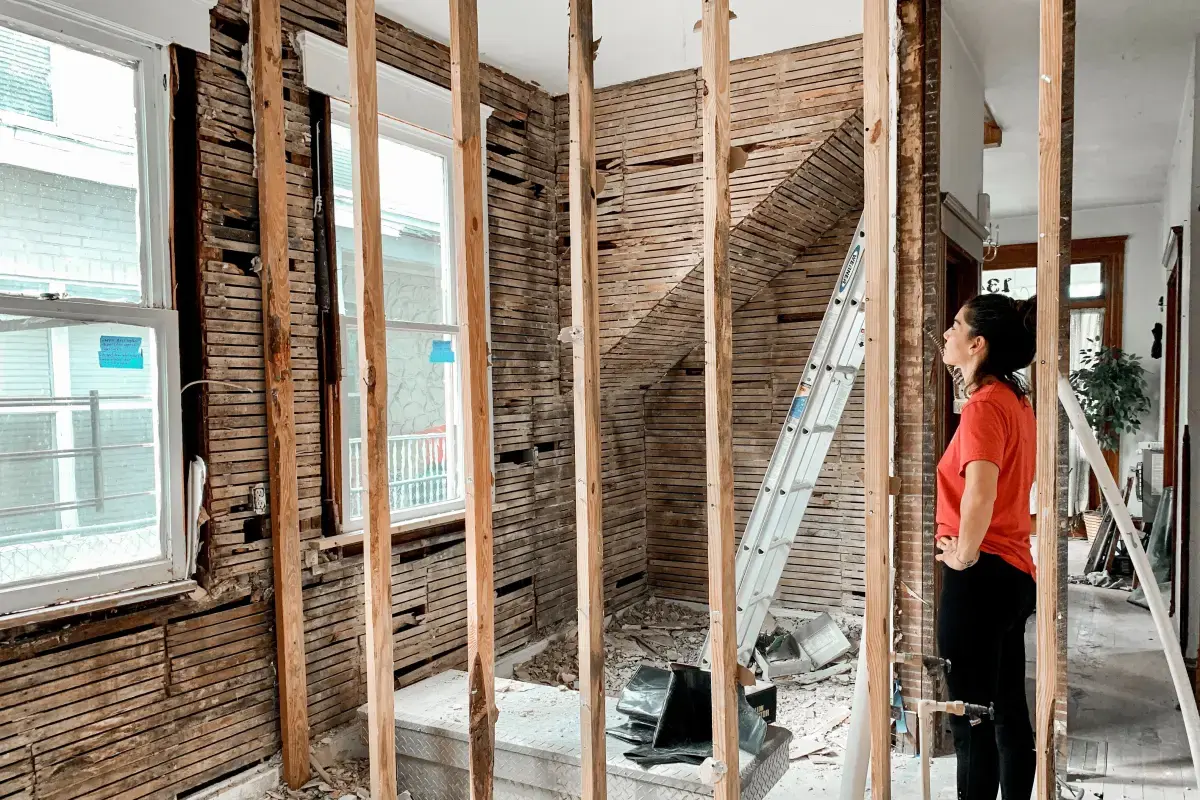
Construction & Building Services in Norway
Find the Best Construction & Building Work in Norway Near You
Hire the Most Trusted Local Construction & Building Workers Near Me. Choose how you work. Choose who you hire.

Find & Hire Construction & Building Experts via our 4 Flexibile Work Services in Norway
Choose which service works for you to find, hire and recruit highly skilled and trusted Norwegian Construction & Building Experts
Gigs
Jobs
Volunteers
Promote
How the gigexchange Norway gig economy service works?
Create Your Gig Economy Listing in Norway
Post any gig job work task you need completed by our experts
Select the Best Freelancers & Gig Workers in Norway
Select from our trusted & verified Norwegian self-employed gig workers
Safe & Secure Financials in Norway
We hold the money while the work gets completed to your satisfaction
How the gigexchange Norway job portal website works?
Business & Recruiters in Norway
Advertise your Construction & Building Jobs for FREE to recruit and employ the best job seekers in Norway
Job Hunters in Norway
Search for Full-Time & Contract Jobs. Find your dream Norwegian job through our online recruitment & employment platform.
How the gigexchange Norway volunteering platform works?
Charities & Non-Profit Organisations in Norway
Post a Volunteer Advert for FREE, always!
Volunteers in Norway
Search and find volunteering roles in Norway
How the gigexchange Norway advertising service works?
Post a Classified Ads in Norway
Advertise your Construction & Building business service in Norway for FREE
Find New Customers in Norway
Connect and engage with new customers in Norway
Feedback, Ratings & Reviews
Grow your brand on gigexchange through our Customer Testimonials & Accredited Reviews
Check our Construction & Building Services
What is the Construction & Building Industry in Norway
The construction industry in Norway is an important contributor to the country’s economic growth. It accounts for around 3-4 percent of GDP and directly employs over 100,000 people across both public and private sectors. The Norwegian government has invested heavily in infrastructure development since 1970s with a focus on modernisation projects such as highways, airports and railway networks which have boosted the construction industry significantly throughout this period. Currently there are three main components that drive activity within the sector: residential building (accounting for 40%), industrial/commercial buildings (30%) followed by social housing projects or infrastructural works such as roadways bridges etc.(20%). As far back into history it can be traced almost all traces of old constructions still exist today due largely to high levels of maintenance seen through stone carving utilised until recent times contrasting strongly when compared to other northern European countries who predominantly use timber leading them prone more vulnerable destruction caused mainly weather related factors making any periods prior estimations much harder ascertain though evidence suggested historically used similar materials however even knowledge limited traditional methods remain amongst those practising local crafts primarily focusing earthworks build foundations walls using natural stones/clays well repointing stonework conserves original character structures often generated greater appreciation new generations giving rise vibrant tourist destinations maintain communities working age population whilst preserving retaining long standing cultural identity ensuring continuity tourism figures providing essential boost many rural locations looked after sustainably managed benefit entire Norwegian nation holistically defined

What is the role & importance of the Construction & Building Industry Associations in Norway
The construction industry associations in Norway play a very important role across the entire country, as they are responsible for representing businesses and workers within the sector. Their mission is to promote shared interests between all participants of this economic system (owner-operators, contractors, suppliers etc.). By having an organised entity with clearly defined pathways for communication and resolution of disputes related to issues such as purchasing land or materials costs that often arise from large scale projects; it ensures development can occur safely without risk of costly delays due to lack of representation. Furthermore by providing access points where patrons or entrepreneurs looking enter into agreements over machinery hire/purchasing may do so confidently knowing representative body exists which will aid then should any potential conflict arrive at future point; provides opportunity new entry level players whilst giving stability assurance long established members depend upon Additionally another major role Construction Industry Associations undertake relates closely to education – whether be public outreach efforts teaching importance energy efficiency / green building practices those courses aimed specifically training up coming professionals learn most current techniques material utilisation finished product quality standards ; such knowledge spread organisations help ensure society architecturally well equipped face 21st century Buildings must not only aesthetically pleasing but also safe comfortable environment people work rest As result bodies like Norwegian Building Council charged ensuring enjoys highest possible technology advancements state art factories warehouses residential housing commercial complexes

What are the benefits of joining a Construction & Building Industry Association in Norway
Networking: Joining construction associations in Norway can give you the opportunity to network with many other professionals, allowing members to build strong relationships and increase their visibility within the industry. This will help members stay informed on current trends and open up new opportunities for work or collaborations between firms or individuals. 2. Education & Training Opportunities: Many construction associations provide educational services as well as professional development workshops that are available both online and offline throughout different parts of Norway. These events allow members to keep abreast of legislation changes, technical developments within the sector, safety issues etc; all topics highly relevant for any contractor wishing operate safely but also profitably in an ever-changing environment such us this one so specific activities it involves working at heights is a prime example where additional training might be required even by experienced employees due stringent regulations applied there too . 3. Learning Resources & Publications: Construction trade association have invested heavily into research materials which allows them to regularly produce high quality publications related specifically towards tackling key areas directly affecting those involved in building practices across regions from architectural requirements ,familiarizing themselves with local laws enforcing silica dust control measures through special certification boards (VAR )for instance among others more academic based requiring graduation degree degrees like structural engineering … Moreover platforms used by these organizations quite often serve primary resources In terms of finding specialized contractors capable carrying out certain tasks efficiently according respective situation/site conditions

What are the current work opportunities in the Construction & Building Industry in Norway
Self-Employed/Contractor: The Norwegian government has an arrangement that allows foreign workers to come in and work as independent contractors or self-employed persons, even if they don’t have a permit to stay permanently in Norway. This is known as the “etableringstillatelse” visa and enables individuals from other EU states (or third countries) to take on projects here for up to 6 months at any one time over a 2 year period – after which point you must reapply with your updated CV & portfolio of previous works/clients etc.. Business opportunities within this sector include project management, architecture design & implementation services; civil engineering jobs such construction of bridges, roads); HVAC systems installations; electrical / plumbing work; industrial carpentry tasks like building foundations bricklaying .etc.; concrete forming , plant operation maintenance ; restoration refurbishment -all these areas require professional qualifications certification experience together with basic knowledge about local laws regulations 2. General Job Market : In terms of regular job market for those looking employment opportunity without having own business there are two main sources offers employment vacancies hiring announced publically by various companies most commonly classified websites portals newspapers magazines social media platforms including some reputable recruitment agencies specialized administrative offices authorized arrange foreigner citizenship applications both sectors offer varied types skills expertise required positions openings vary depending kind scale products services provided company size organization type fields involve may range small residential units big infrastructural constructions related gas oil telecom industries just few examples Civil Engineering Metallurgy Electrician Masonry Drafting Environmental Planners Hydraulic Specialists Petrochemical Planning Heating Ventilation Conditioners Pipeline Design Riggers Transport Operatives Welders Machinist Mine Surveyors Building Laborers Structural On Site Managers Mechanical Engineers Architects Safety Inspectors Heavy Equipment Material Handlers Project Directors Cost Accountants Contract Administrators Fitters plus many others should note although language requirement can smoother process especially obstacle Volunteering Opportunities Although volunteering not considered formal occupation it great way gain deeper insight into working environment also hands practice help start career individual provide invaluable assistance existing organizations servicing their state community ranging non governmental charitable institutions private initiatives educational NGOs possibly able meet masters trade learn valuable theoretical practical aspects advanced technology available industry constantly evolving arenas technological advances Renewable energy Construction Technologies Robotics Automation part maintaining standards quality further development broadening profiles structural educations certifications employers keen hire well rounded engaged professionals willing keep step times Therefore above mentioned ways currently find apply suitable roles field constructions Norway With abundance resources plenty options slowly carefully planning strategy success await








